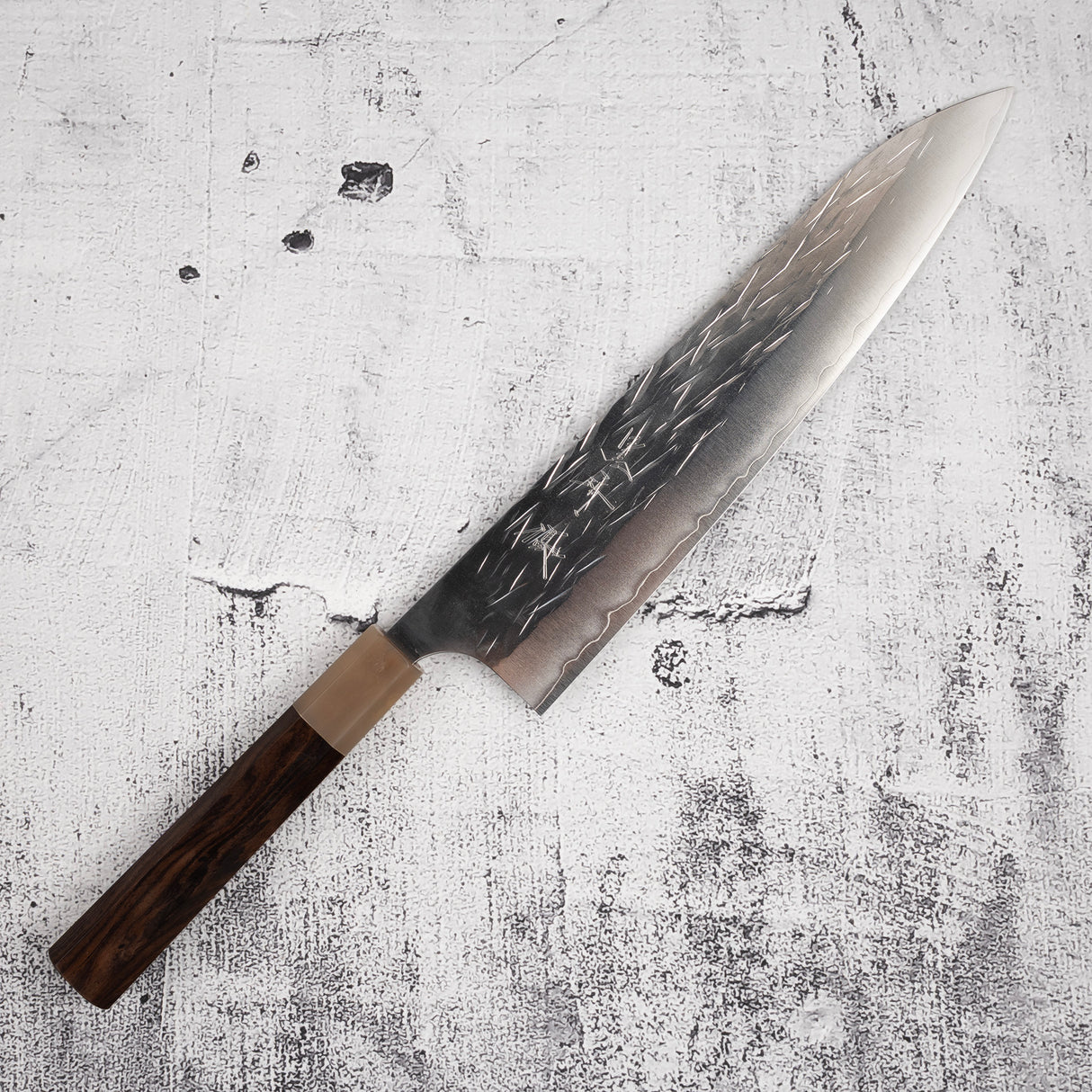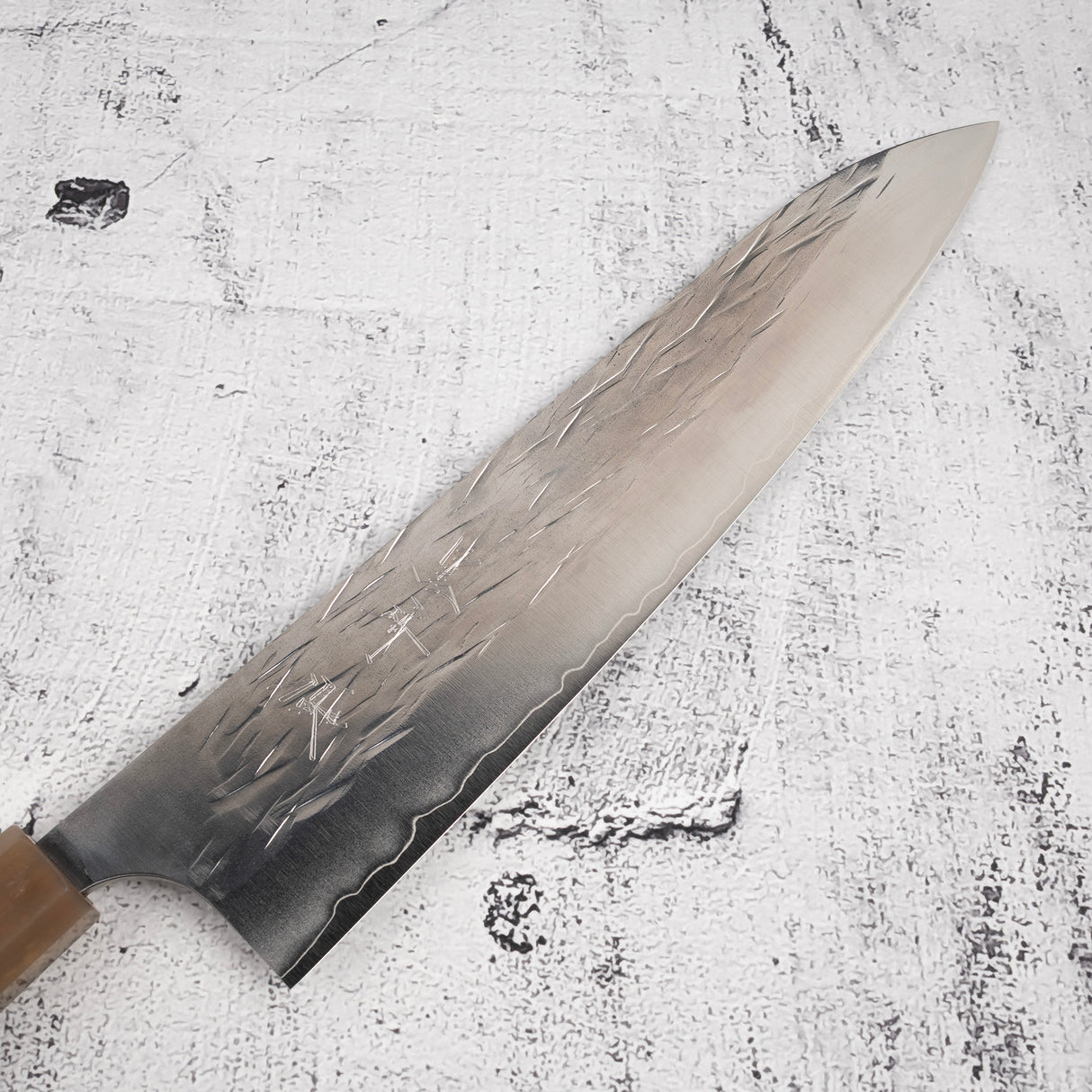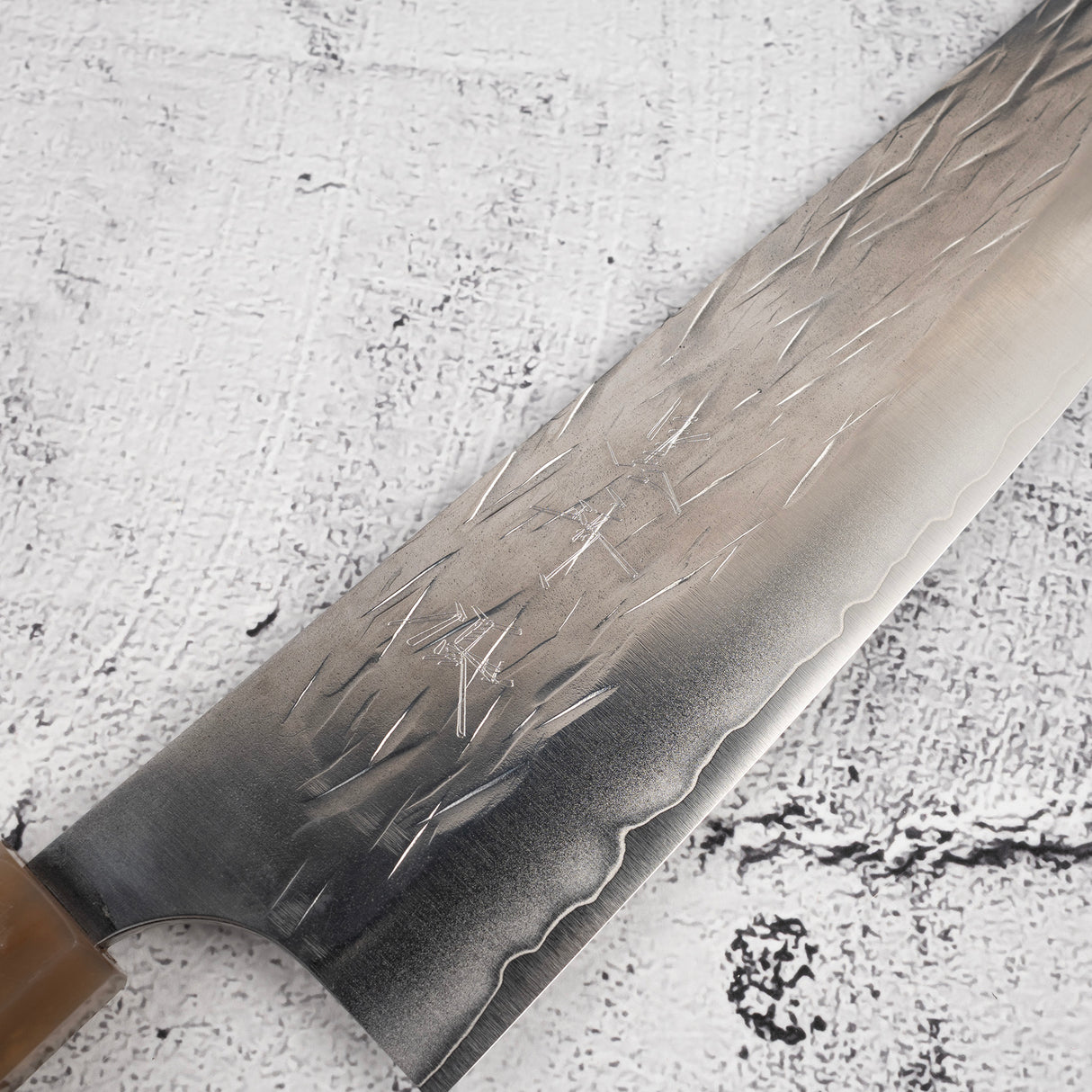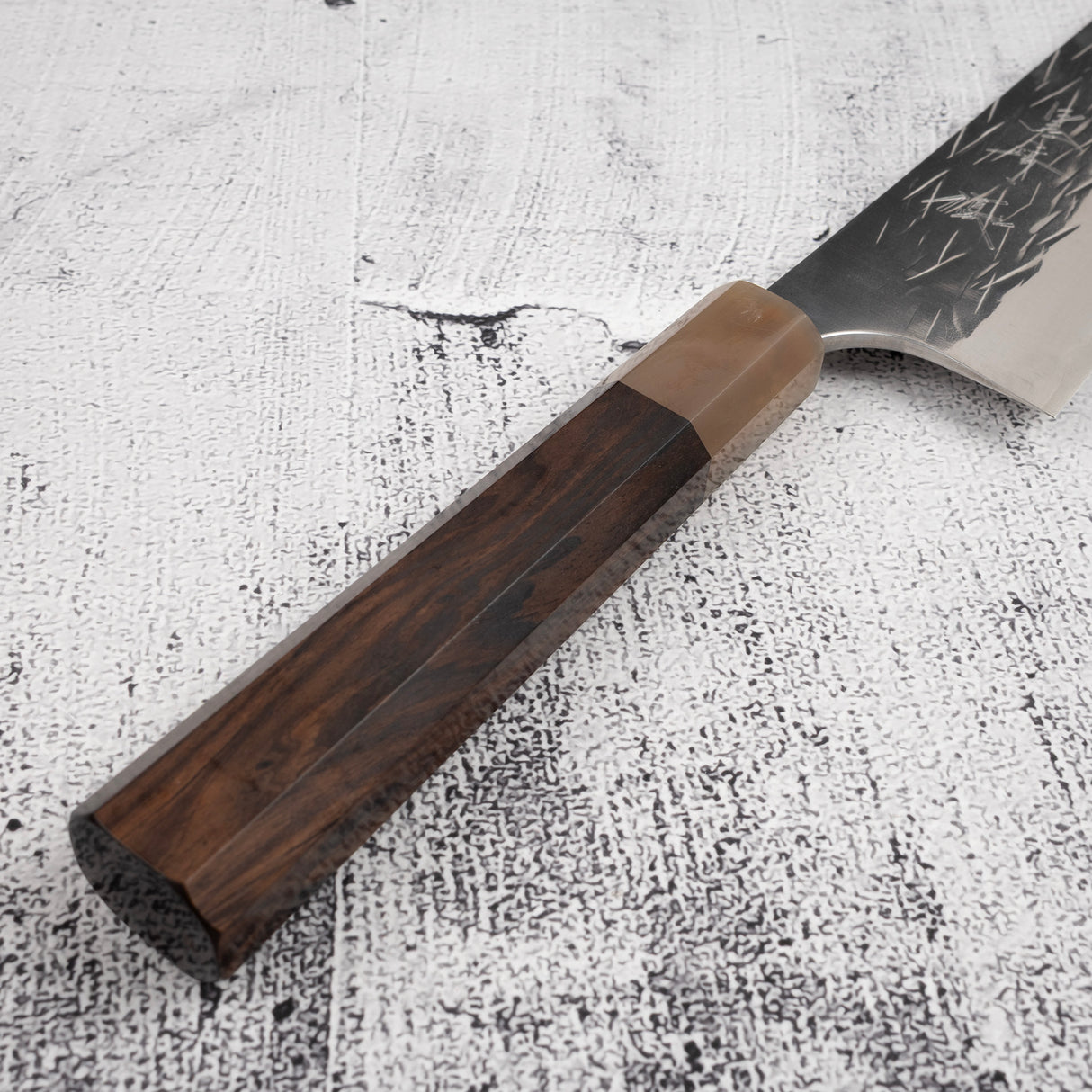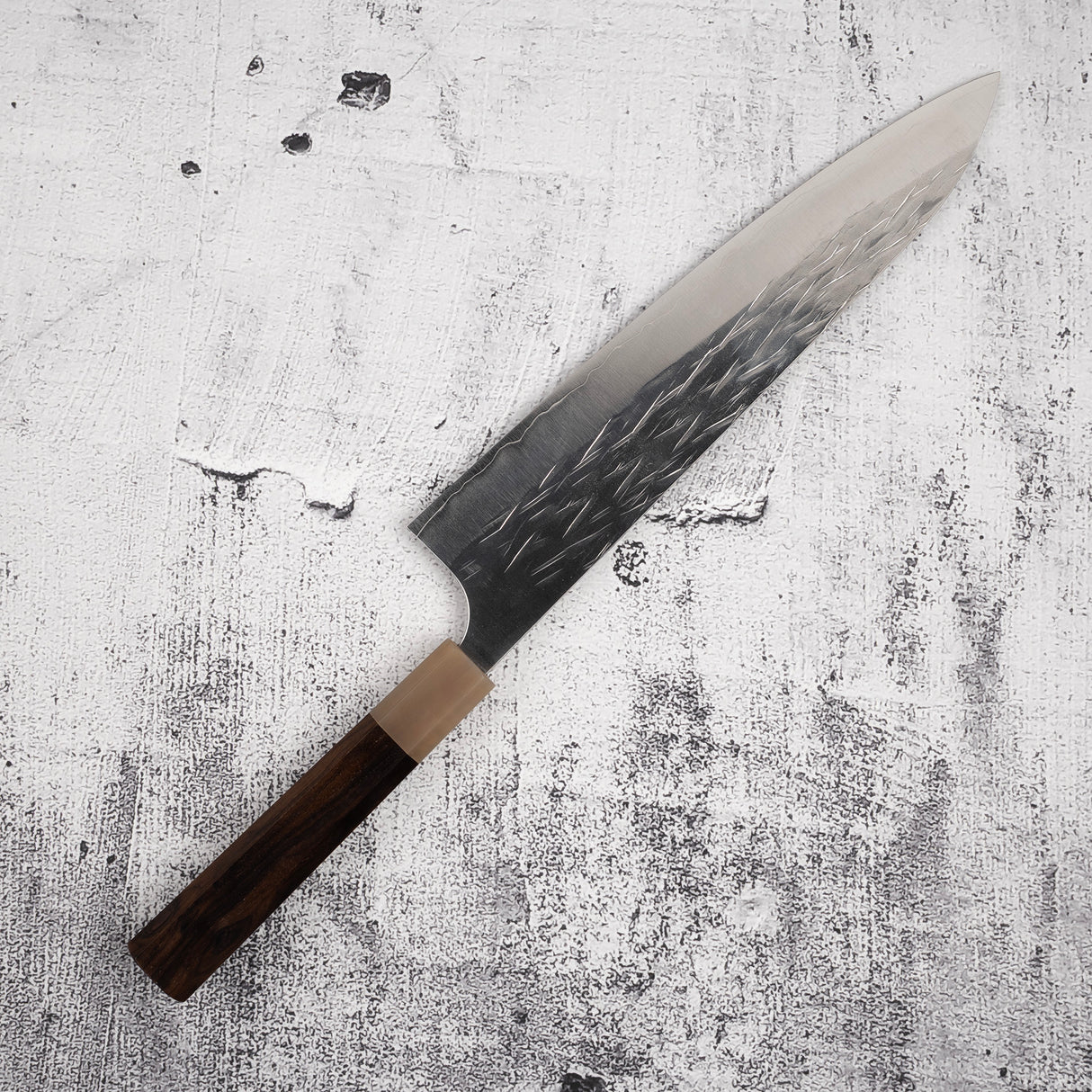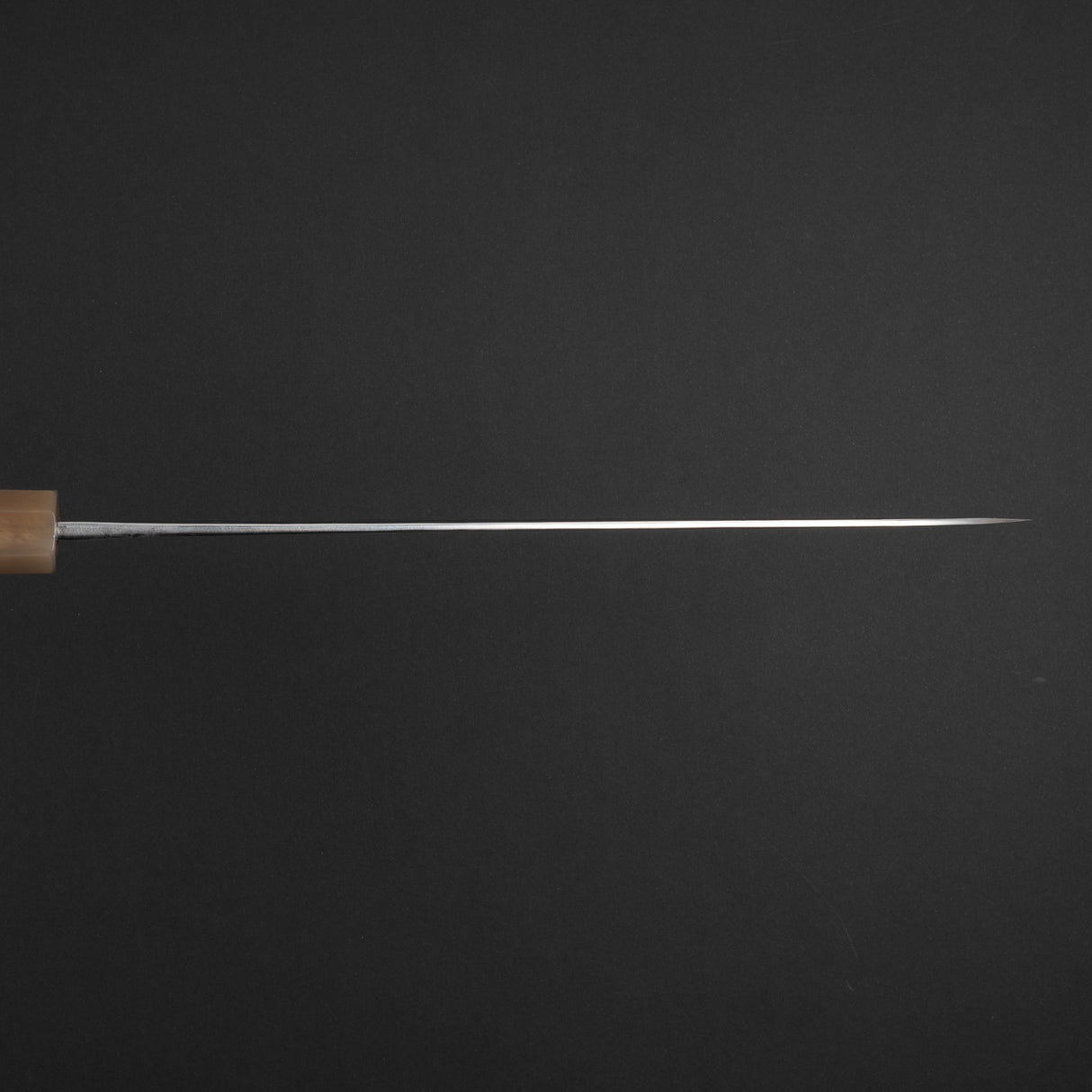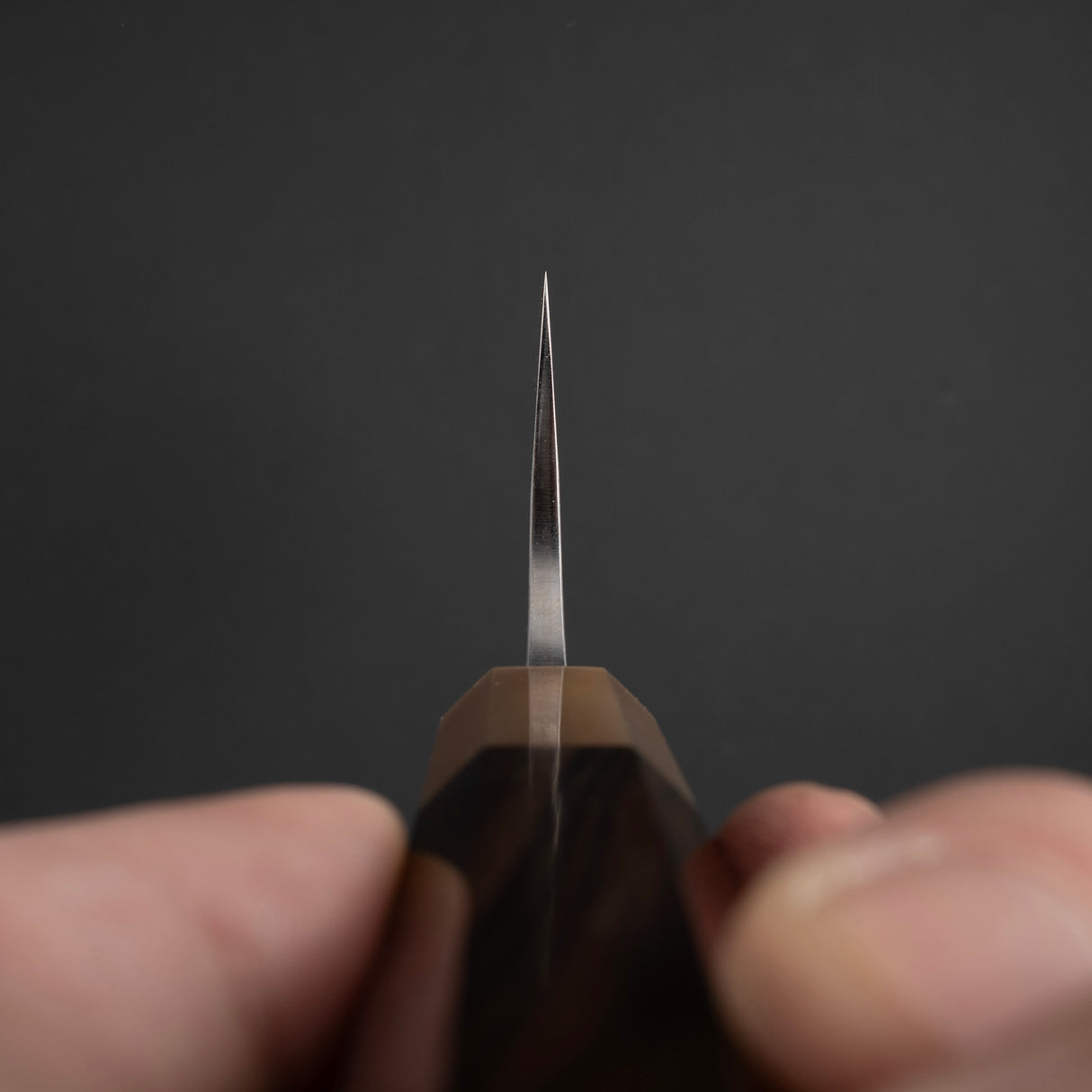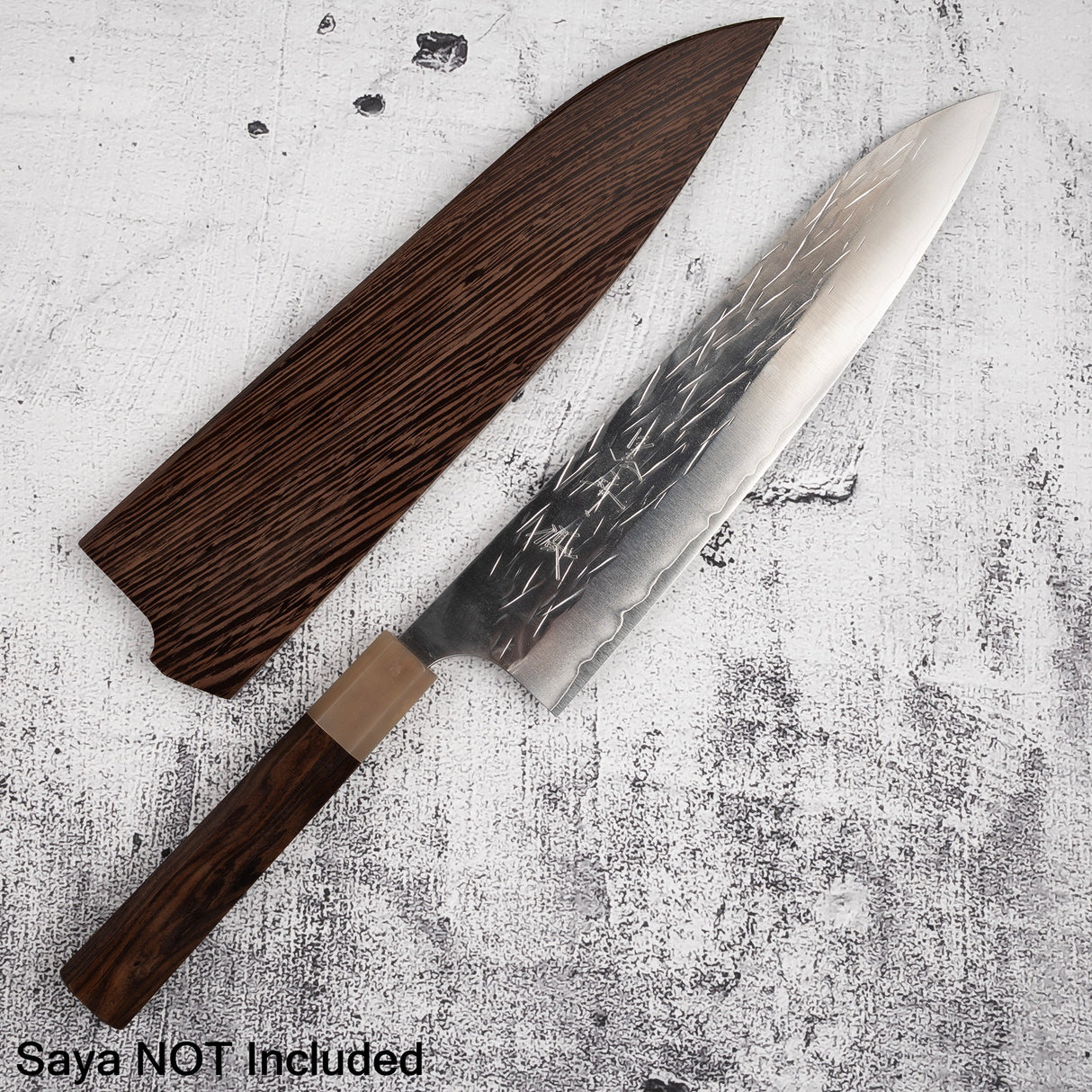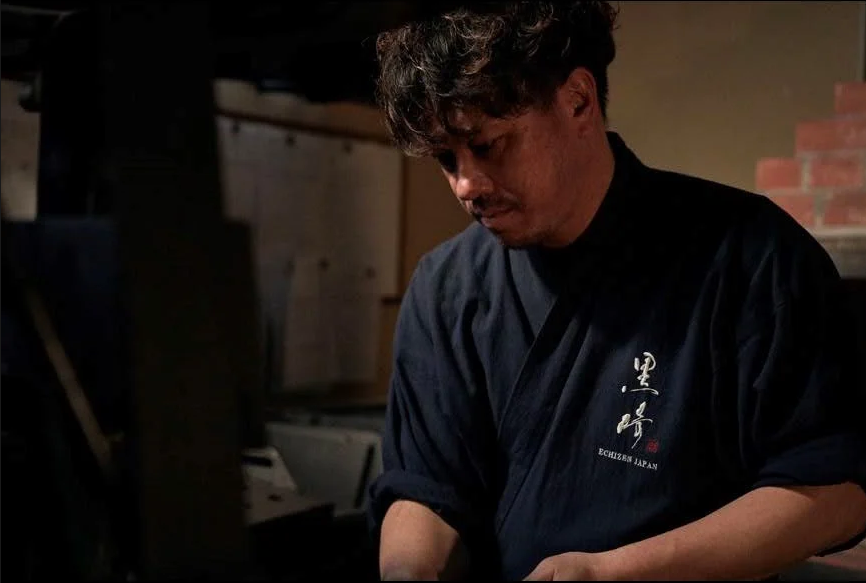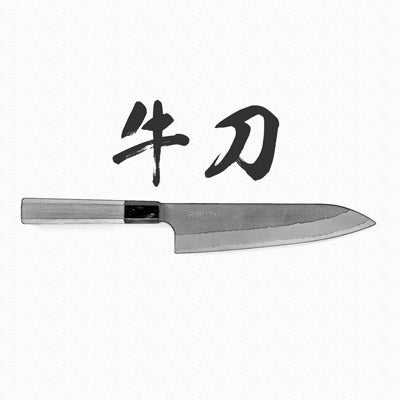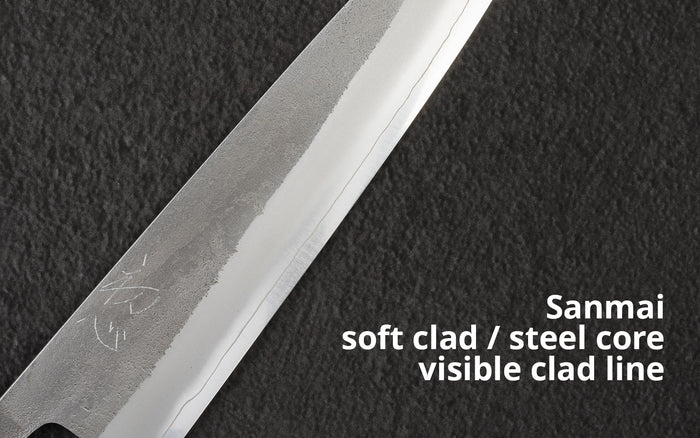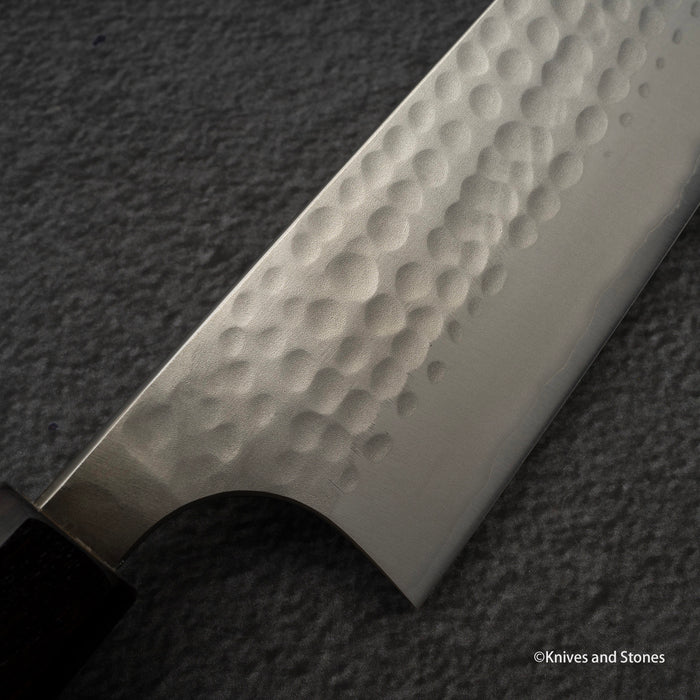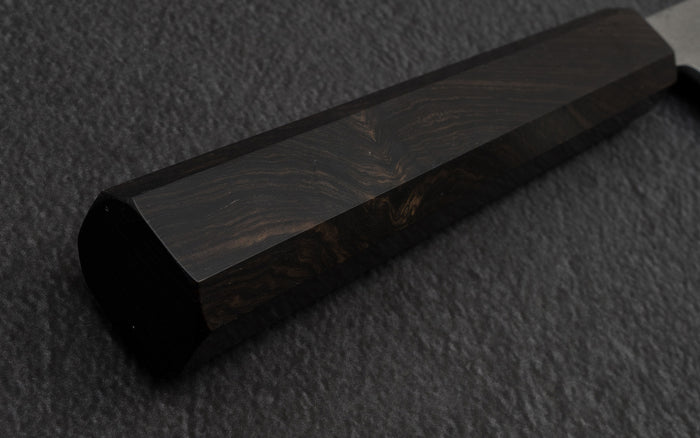Kurosaki | SKU:
KS-SACO-GY240
Kurosaki Sasame COSP Gyuto 240mm
Sale price
$501.98
Regular price
$589.95
Unit price
/
Unavailable
Kurosaki Sasame COSP Gyuto 240mm is backordered and will ship as soon as it is back in stock.
Couldn't load pickup availability
Detailed Specifications
| Line | Kurosaki Sasame COSP Tsuchime |
| Profile | Gyuto / Chefs Knife |
| Bevel Type | Double Bevel |
| Weight | 224 g | 7.9 oz |
| Edge Length | 244 mm | 9 39/64″ |
| Heel Height | 51 mm | 2 1/64″ |
| Width @ Spine | 3.6 mm | 9/64″ |
| Width @ Mid | 2.1 mm | 5/64″ |
| Width @ 1cm from Tip | 1.0 mm | 3/64″ |
| Steel | COSP (Cobalt Special) | Stainless |
| Blade Construction | Sanmai - Stainless Clad |
| Hardness (HRC) | 60 - 62 |
| Surface Finish | Tsuchime |
| Handle | Octagonal Ebony |
| Region | Takefu |
| Best for |
|

| Pros | Cons |
|
|
|
Care Instruction
- Don't cut hard things! Japanese knives are brittle so bone hacking is a NO NO!
- Wash with neutral detergent after use, and wipe dry;
- Please don't wash knife with dishwasher, it will damage the wood handle;
- Be careful not to leave the knife close to a heat source for a long time;
- It is a lot more dangerous to cut with a blunt knife than a sharp knife!
- It is best to sharpen a Japanese knife regularly on a waterstone.

